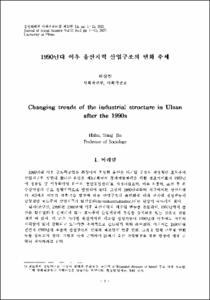지연제어동작을 갖는 샘플데이타 시스템의 최적제어
- Alternative Title
- Optimal Control of Sampled-Data System with Delayed Control Action
- Abstract
- 본 논문에서는 지연제어동작을 갖는 샘플데이타 시스템의 제어문제를 다루고자 한다. 그 문제는 전적으로 이산시간 영역에서 명확히 설명되고 선형최적확률제어기법 (LQG approach) 에 의하여 해결된다. 또한 본 논문에서 제안된 제어기법(LQG approach)으로 설계된 선형최적 확률보상기 (LQG compensator) 가 지연제어입력을 가지는 경우에도 분리원리 (Separation Principle) 가 성립됨을 증명한다. 본 연구의 이론적인 결과를 Two-Mass-Spring 시스템에 적용하여 검증하였다. 결과로부터 알 수 있는 사실은 지연제어동작으로 야기된 시스템의 안정성 (stability) 과 강건성 (robustness) 그리고 제어시스템의 성능 (performance) 저하는 본 논문에서 제어된 방법을 통하여 회복 또는 향상될 수 있다는 것이다. 특히 그 최적확률보상기는 시간지연으로 발생하는 제어동작 포화 (saturation) 로부터 샘플데이타 시스템을 보호할 수 있다.
In this paper, we treat the sampled-data control problem that accounts for time-delay in the contril action. The problem is formulated entirely in discrete-time domain, and the optimal design is achieved in Linear Quadratic Gaussian(LQG) approach. It is shown in this approach that 'Separation Principle' is valid with an additional feedback of delayed control input to the LQG compensator proposed in this paper. The method is applied to a benchmark problem of two-mass-spring system. Design results obtained indicate that degradation of stability, robustness and performance due to the delayed control action may get recovered to (or even better than) level of the system with no delay time through the design method proposed. Especially, the LQG approach shows the fact that the LQG compensation may prevent the sampled-data control system from saturation of control action due to the time-delay.
In this paper, we treat the sampled-data control problem that accounts for time-delay in the contril action. The problem is formulated entirely in discrete-time domain, and the optimal design is achieved in Linear Quadratic Gaussian(LQG) approach. It is shown in this approach that 'Separation Principle' is valid with an additional feedback of delayed control input to the LQG compensator proposed in this paper. The method is applied to a benchmark problem of two-mass-spring system. Design results obtained indicate that degradation of stability, robustness and performance due to the delayed control action may get recovered to (or even better than) level of the system with no delay time through the design method proposed. Especially, the LQG approach shows the fact that the LQG compensation may prevent the sampled-data control system from saturation of control action due to the time-delay.
- Issued Date
- 1994
- Type
- Research Laboratory
- Alternative Author(s)
- Ha, Cheol-Keun
- Publisher
- 공학연구논문집
- Language
- eng
- Rights
- 울산대학교 저작물은 저작권에 의해 보호받습니다.
- Citation Volume
- 25
- Citation Number
- 2
- Citation Start Page
- 11
- Citation End Page
- 25
- Appears in Collections:
- Research Laboratory > Engineering Research
- 파일 목록
-
-
Download
 000002023760.pdf
기타 데이터 / 603.15 kB / Adobe PDF
000002023760.pdf
기타 데이터 / 603.15 kB / Adobe PDF
-
Items in Repository are protected by copyright, with all rights reserved, unless otherwise indicated.